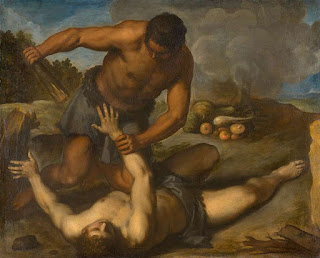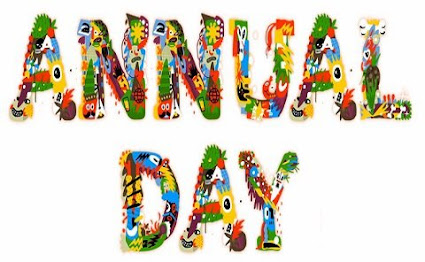Sermon on Genesis 4:13-16
Sermon on Genesis 4:13-16

Within the Torah, the Book of Genesis recalls the primeval history
of the Israelites. Genesis 4:1-16 is a historical narrative. It explores the
death of Abel at the hand of Cain. This is possibly the first murder and
possibly Cain’s first sin, this could even be the very first death. This
pericope’s movement is episodic. Cain and Abel are born of Adam and Eve, Abel
keeps the sheep and Cain tills the ground; they bring to the God an offering
from their respective work areas. After God shows no regard for his sacrifice,
Cain grows angry. Cain plots to lure Abel into a distant field, kill him, and
then attempt to hide from divine justice. Abel does not speak in this passage;
his blood, however, does speak. His blood cries out from the ground and here
comes the divine investigation. Yahweh tries Cain for his life. Walter
Brueggemann calls this section a ‘lawsuit’. Cain responds to God by acting indifferent and
deflective. The first part of Cain’s response is a lie: I do not know. The
second part of that response is a rejection of God’s question as an
inappropriate one: am I my brother’s keeper? It is also clear that Cain is unaware of his parents’ history. Just
as they sought to hide from the eyes and judgment of God, so too does Cain when
he claims not to know where Abel is. Cain shows us that we can eat tasty fruit
and even strike down those in our way. St. Augustine calls this a “misuse of
free will.” Now
the punishment comes from Yahweh, God places on Cain a grave punishment, a
punishment Cain claims that he cannot bear. Cain is aware of the evil that may
await him in Nod. Cain begs for mercy. God places a mark on Cain so that he may
be protected from the many people who may wish to do him harm. Cain then
settles in Nod, east of Eden, the land of the wandering.
However, because
of God’s punishment, God establishes the expectation that mankind learns to
develop awareness of sin. There are also voices that God speaks of, the blood
which is “crying out” from the ground, led me to believe that this is
hyperbole, a form of personification that God uses to illustrate the heinous
act that Cain commits. God also uses this personification to convict Cain to
feel responsible for his sin. However, the choice to pursue this violence will
ultimately lead to a perilous end. Cain expects God to have concern for the
fact that he may come under harm in the land of wandering. If Cain expects
mercy, or was even half-aware that such mercy could be pleaded for, this
suggests that God was still in regular interaction with the people of Earth
even after Adam and Eve’s banishment from the Garden of Eden. There are many
theological disputes over the role of sin because there are different
theologies that suggest differing origins of sin. Whether or not God created
sin, the principle that sin is a mere “missing of the mark,” the consequences
of sin, and so on is entirely ambiguous. Sin is the reason why humanity makes
mistakes that can be learned from. We are programmed to learn only after we
commit a sin and experience the consequences firsthand. While this is not true
of everyone for every sin, there are many nuanced human characteristics that
require a level of self-awareness, critical thinking, self-reflection in order
to develop a level of self-control that we can use to cease sinning.
Cain is banned from the
soil, which obviously means not that he is barred from the contact of the soil
but from the enjoyment of its productivity. Far from being sedentary and
having the time to harvest crops, Cain will be a wandering fugitive. In Verse
13-14 Cain lamenting his distress, Cain speaks and it is a cry of horror. Cain
understood that a life far from God is a life that God no longer protects and
it will be life of unrest, harassment and a life without peace. In Verse 15-16
the narrative surprisingly does not conclude with this but reaches the
important point that Cain does not have the last word in the story but rather
God who now places Cain’s forfeited life under strict protection. Even his life
belongs to Yahweh and he does not abandon it. Modernity has used this text to
explain the universal themes of sin and punishment, redemptive history, and
to explain the theme of universal brotherhood.
Cain became a wanderer and a fugitive upon the earth after the
violence and punishment. The farmer has become a beggar: without parents,
without a brother, without land, without God. Violence also affects one’s own
identity. The restlessness and homelessness that is the lot of many people
today is the result of war and murders or violence and massacres. Cain had
ploughed the soil, offered the fruit of the soil, caused the soil to drink his brother’s
blood, but the soil complained against the murder and therefore the soil denied him the fruit and he was banned from the soil. In the present context we experience
climate change and global warming and this is a global reality and a global
crisis affecting millions of people all over the world. This is a moral cry
from the earth to be heard by each one of us. If we do not hear this cry and go
on plundering and exploiting the earth the future of this planet is in danger.
The cry of the earth is continuing in an alarming sound and the human world is
to heed this and respond to this cry positively. On the other side, any act of
injustice against a brother or a sister is a violation of the moral structure
of the universe which God has established. Today in Manipur oppression and
murder may silence the innocent people, but the cry will arise from the
universe and will reveal the truth. The cry of our brothers and sisters is a
cry of moral justice. Violence alters
relationships of all kinds, including those among the human beings, between God
and human beings, and between the human and non-human world. At the beginning
of Chapter 4, Cain was in relationship with his parents as a son, he was in
relationship to Abel as his brother, he was in relationship with Yahweh as good
worshiper, he was in relationship to the earth as a good farmer. At the end of
the story, he is none of these. He even lost his identity and became a
wanderer and a fugitive. The pericope Genesis 4:13-16 also presents the image
of an oppressor and a victim and also indicates that in this world God’s
justice over against violence. The primary meaning to this is that the
oppressor has no place on God’s earth. Human beings have been oppressing
the non-human world, as well as fellow human beings for their greed and
pleasure. Violence tends towards expansion and escalation: in the wake of the
outrage, lie, impudence, rejection of responsibility for another person,
self-pity, protest against God, and finally the possibility of a new murder. This
is the call for every one of us to be aware of how dangerous the result of
violence is. As a responsible follower of Christ, let us free the people from
danger, and bring comfort to those who are on the verge of death. Come let us
be the voice for the voiceless and hope for the hopeless, and be the sojourners
of Christ in delivering responsible freedom. Amen.
A. JENIL DHAS
Thank you for visiting JD Scribble. Feel free to give your comments. Don't forget to follow my blog. 😊




Comments
Post a Comment